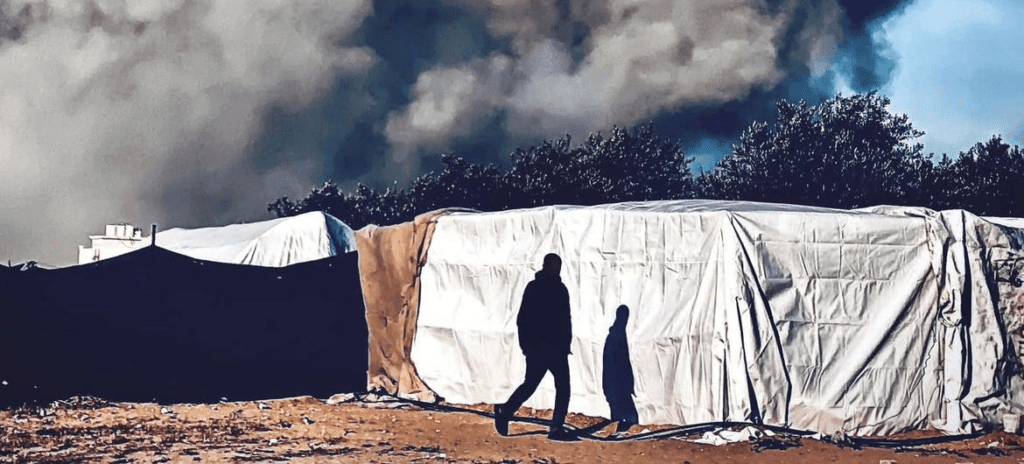
United Nations, 12 May 2024
The Secretary-General and the UN human rights chief said again on Sunday that a large-scale Israeli offensive in Rafah must be prevented at all costs, warning of catastrophic consequences in the densely populated southern area in Gaza.
The warning comes as the UN Palestine refugee agency, UNRWA, reported that over the past week that nearly 300,000 people have now fled Rafah following the Israeli military’s orders for further evacuations from the area.
“There is nowhere safe to go,” the agency warned in a message on X.

Catastrophic consequences
In a telephone conversation on Saturday, UN chief António Guterres and Qatar’s Prime Minister and Foreign Minister Sheikh Mohammed bin Abdulrahman bin Jassim Al Thani agreed that “a full-scale military operation in Rafah would have catastrophic consequences and must be prevented,” according to a report of the conversation published by the office of the Secretary-General’s spokesperson.
“The Secretary-General expressed deep appreciation for Qatar’s continued mediation efforts to broker a deal for an urgent ceasefire in Gaza and the immediate release of hostages,” he said.
Mr. Guterres also discussed the situation in Gaza on Sunday in Kuwait City with the Emir of Kuwait, Sheikh Meshal Al-Ahmad Al-Jaber.
In a comment to the press on Sunday, the UN High Commissioner for Human Rights, Volker Türk, said he was “deeply distressed by the fast deterioration in Gaza as Israeli forces intensify their air strikes” across Gaza.
He also expressed concern about reports of indiscriminate rocket fire from Gaza.
‘Where should they go now?’
Mr. Türk noted that the latest evacuation orders from the Israeli army concern nearly a million people in Rafah. Since the Israeli military issued initial evacuation orders on 6 May, more than 278,000 Gazans have fled Rafah, an area one deemed a safe zone.
“Where should they go now? There is no safe place in Gaza,” he said.
These are exhausted and hungry people, many of whom have already been displaced several times, and do not have good options, he said.
Other towns in Gaza, including Khan Younis, which is currently supposed to host displaced people from Rafah, have already been reduced to rubble and remain under attack.
“These are not safe places,” he stressed.
Flouting world court orders
The human rights chief said he did not see how the latest evacuation orders, much less a general assault, in an area with an extremely dense presence of civilians, can be reconciled with the binding demands of international humanitarian law and with the two sets of binding provisional measures ordered by the International Court of Justice (ICJ).
“A large-scale offensive on Rafah cannot take place,” he said, calling on all influential States to do everything in their power to prevent it to protect civilian lives.

Dire aid shortage amid border closures
At the same time, there is a “dire shortage” of aid reaching Gaza, Mr. Türk said.
“At this desperate moment, exacerbated by acts impeding the entry of humanitarian aid in Gaza through the three crossings, there is a dire shortage of fuel,” he warned.
Fuel shortages are “hindering everything”, from the movement of food and operation of hospitals to sewage treatment and telecommunications, he added.
Expressing concern for the safety of civilians and humanitarian workers, he called on Israel and Palestinian armed groups to urgently agree to a ceasefire and immediately release all hostages.
Donate to the humanitarian response in Gaza
The original article appeared here.